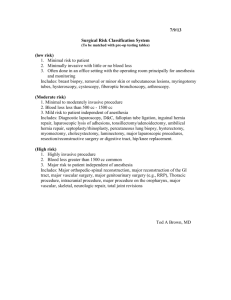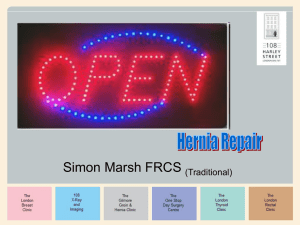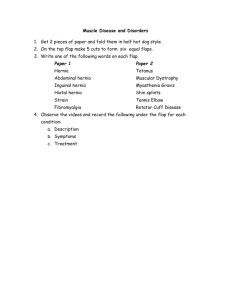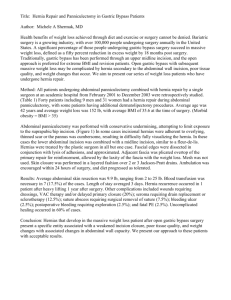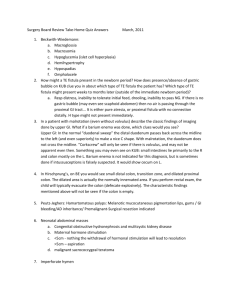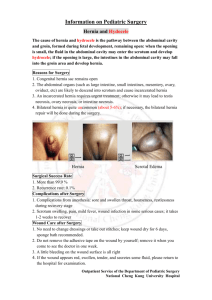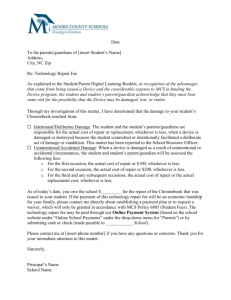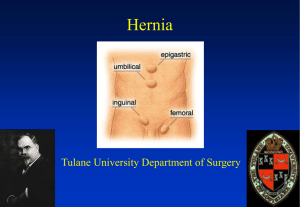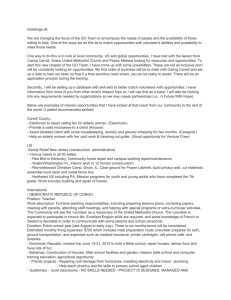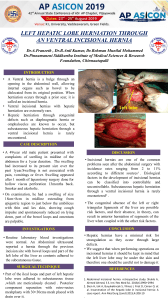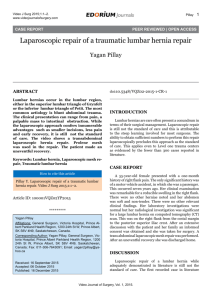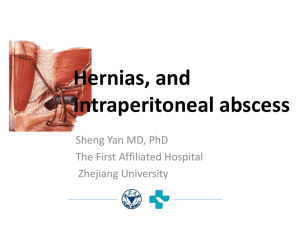AGENDA Optimizing Results for Ventral Hernia Repair
advertisement
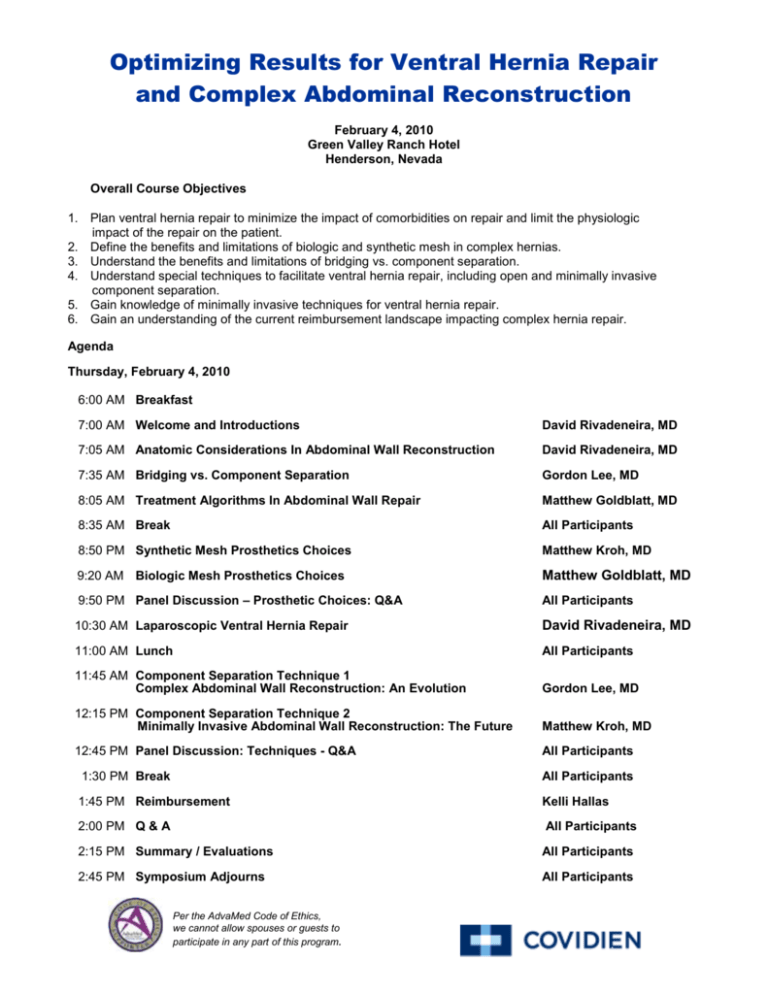
Optimizing Results for Ventral Hernia Repair and Complex Abdominal Reconstruction February 4, 2010 Green Valley Ranch Hotel Henderson, Nevada Overall Course Objectives 1. Plan ventral hernia repair to minimize the impact of comorbidities on repair and limit the physiologic impact of the repair on the patient. 2. Define the benefits and limitations of biologic and synthetic mesh in complex hernias. 3. Understand the benefits and limitations of bridging vs. component separation. 4. Understand special techniques to facilitate ventral hernia repair, including open and minimally invasive component separation. 5. Gain knowledge of minimally invasive techniques for ventral hernia repair. 6. Gain an understanding of the current reimbursement landscape impacting complex hernia repair. Agenda Thursday, February 4, 2010 6:00 AM Breakfast 7:00 AM Welcome and Introductions David Rivadeneira, MD 7:05 AM Anatomic Considerations In Abdominal Wall Reconstruction David Rivadeneira, MD 7:35 AM Bridging vs. Component Separation Gordon Lee, MD 8:05 AM Treatment Algorithms In Abdominal Wall Repair Matthew Goldblatt, MD 8:35 AM Break All Participants 8:50 PM Synthetic Mesh Prosthetics Choices Matthew Kroh, MD 9:20 AM Biologic Mesh Prosthetics Choices Matthew Goldblatt, MD 9:50 PM Panel Discussion – Prosthetic Choices: Q&A All Participants 10:30 AM Laparoscopic Ventral Hernia Repair David Rivadeneira, MD 11:00 AM Lunch All Participants 11:45 AM Component Separation Technique 1 Complex Abdominal Wall Reconstruction: An Evolution Gordon Lee, MD 12:15 PM Component Separation Technique 2 Minimally Invasive Abdominal Wall Reconstruction: The Future Matthew Kroh, MD 12:45 PM Panel Discussion: Techniques - Q&A All Participants 1:30 PM Break All Participants 1:45 PM Reimbursement Kelli Hallas 2:00 PM Q & A All Participants 2:15 PM Summary / Evaluations All Participants 2:45 PM Symposium Adjourns All Participants Per the AdvaMed Code of Ethics, we cannot allow spouses or guests to participate in any part of this program.
